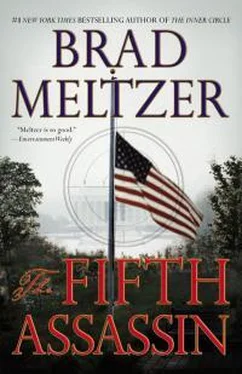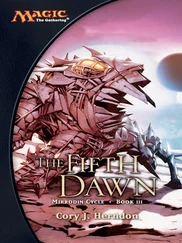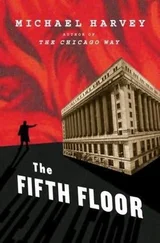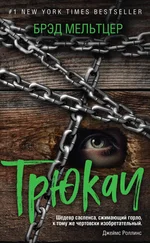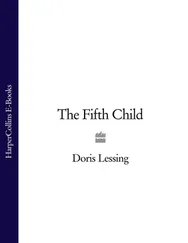As we reach the very last row, the last two pews are roped off by more police tape, where the killer took his first shot at the rector. More placards with little arrows on them mark the blood spatter along the pews and wood floor. This time, though, I know the pew we’re looking at—the one that’s more famous than all the others combined.
The Lincoln Pew.
It’s the last pew, the very last row. Back in the 1860s, Lincoln used to walk across the street from the White House, sneak into this pew in the back, and then disappear before the church service was over. The gold plaque on the wall reads: He was always alone .
“So the killer shot at the rector from this pew?” Tot asks.
Hayden says something, but I don’t hear it. I study the pew… the wooden bench… the hardwood floor. But the closer I look… Something’s not right.
“Okay, you’ve seen the pew. Now can we go?” Hayden begs.
I don’t move.
“Beecher, what’s wrong?” Tot asks. “You see something?”
I don’t answer.
Next to me, Tot rolls the pen he’s still holding against the tip of his beard. Following my sightline, his good eye scrolls along the bench, up to the stained glass window that hangs above it, then over to the back wall of the church, which is flush with the back of the pew. He still doesn’t see it.
“We need to go,” Hayden says. “The detectives made me call all our employees. They said everyone had to stay home, so if they find you here…”
“Hayden, I need two minutes,” I tell him.
“You said you’d be quick!” Hayden says to Tot.
“ Hayden ,” I bark, raising my voice just enough that he turns my way. “Listen to me. Do you know who Joseph B. Stewart is?”
Hayden pauses, confused. “Who?” he asks, checking over his shoulder. “Is that a congregant?”
“ Listen to me ,” I insist. “On the night that Lincoln was shot in Ford’s Theatre, Joseph B. Stewart was the only member of the audience who actually got up out of his seat and chased after John Wilkes Booth. Think of it a moment. The President is dying. A single metal ball is shot into Lincoln’s brain and lodges behind his right eye. Of course, hundreds of people start screaming, but in that moment, Joseph B. Stewart keeps his wits, gets up from his front-row seat, and jumps across the orchestra pit to try to grab Booth as the assassin darts across the stage. Stewart actually hopped across the chair tops as he ran after him. And yes, Booth got away. But for those first days after the shooting, it was Joseph B. Stewart who was America’s hero.”
“I don’t see your point,” Hayden says.
“The point is, he’s now forgotten by history, but when he was faced with that challenge, he did what was right . So now it’s your turn, Hayden. I need two minutes here. You really want to kick us out?”
Hayden stands there, motionless, digesting every word.
“Just please…” Hayden begs, once again checking over his shoulder. “Be quick.”
6
I dart toward the back of the church and head past the police-taped area, into the small anteroom that leads out to the public entrance.
“Beecher…!” Tot calls out, speed-limping behind me.
I don’t slow down.
“Beecher… will you—? What’d you find?”
“Tot, on the night of Lincoln’s assassination in Ford’s Theatre, John Wilkes Booth didn’t just come in and pull the trigger. Tell me what you know about the precautions he took.”
He knows the story. “He drilled a hole in the door.”
“Exactly. Hours before the play started, Booth went up to Lincoln’s box and drilled a peephole in the right side of the door so he could see inside and make sure there were no guards. And what else?” I ask.
“He took a long, narrow piece of pine—the neck of an old music stand—and he hid it in the box so that once he was inside, he could use it to bar the door.”
“And what about the weapons?”
“Forty-four caliber, single-shot Derringer pistol. But since it only had that one shot, he also brought a knife that—” Tot cuts himself off, knowing what it said about the rector in the police report. Shot once in the back; throat slit in the front. “Wait. You really think—?”
“Look for yourself,” I say, reaching up toward an old framed watercolor that hangs on the wall. The picture shows the church back when it and the White House were the only two buildings on the block. But as I pull the frame from the wall…
There it is.
Just under the nail that holds the picture in place is a small round peephole. Even from here, I can tell it goes through the wall and into the Lincoln Pew.
“That’s when I started looking for this …” I add, pointing to the church’s main doors—and the metal urn that serves as an umbrella stand. There are two stray umbrellas in there. Plus one long, narrow piece of pine.
“Oh my,” Hayden whispers.
“So you think your friend is a John Wilkes Booth copycat?” Tot asks.
I stay silent, still sifting through the details. Between the time of death… the way it was set up… and all that preparation to make it just right… This is more than a copycat. This is a full-on re-creation . And if it’s a re-creation…
No.
Pulling out my phone, I scroll through my emails.
Tot watches me carefully, tapping the pen against his beard. “Beecher, tell me what you’re not saying.”
“On that night that John Wilkes Booth pulled the trigger, every single detail—large or small—is accounted for,” I say, still scrolling through my phone. “How Booth planned it… the coconspirators he worked with… the type of drink he had at the saloon next door…”
“Whiskey with water,” Tot says.
“But what’s the one detail, the only one in nearly a hundred and fifty years that no one—and I mean no one —can account for?”
Tot doesn’t even pause. “How Booth got past the White House valet.”
“Bingo. How Booth got past the White House valet.”
Reading the confused look on Hayden’s face, I explain, “Back then, security in Ford’s Theatre was beyond pathetic. The police officer who was supposed to be guarding Lincoln’s private box actually left his post so he could get a better view of the play. So when Booth finally made his way up there, the only one standing guard was Charles Forbes, Lincoln’s White House valet. Historians agree that, at that moment, Booth stopped and spoke to the valet. They agree that Booth showed the valet a card. But the one thing no one knows is what was on the card. What’d Booth show him? What’d it say?”
“Some say it was a letter,” Tot points out. “Others say it was Booth’s business card, which, since he was a famous actor, would certainly open doors.”
“But again, the reason the valet stepped aside and let Booth into Lincoln’s private box was because of whatever was on that magic card.”
Tot knows me long enough to know I’m not done.
“Don’t tell me you know what’s on that card, Beecher.”
I shoot him a look, motioning down to my phone. “Remember that thing that they found in the suspect’s pocket?”
He nods. I’m talking about Marshall having my name and phone number.
“Well, I take notice when people have that on them. So when we were driving here, I had Mac send me the full list of his belongings. Look what else he had with him…”
I push a button on the phone, and an image pops open onscreen. I hold it up to Tot, making sure he gets a good look.
Tot squints. Hayden leans in.
“Old playing cards?” Hayden asks.
“A full deck of them,” I say. “Nineteenth-century, from the look of them.”
“I still don’t see what this had to do with John Wilkes Booth’s mystery card.”
Читать дальше
